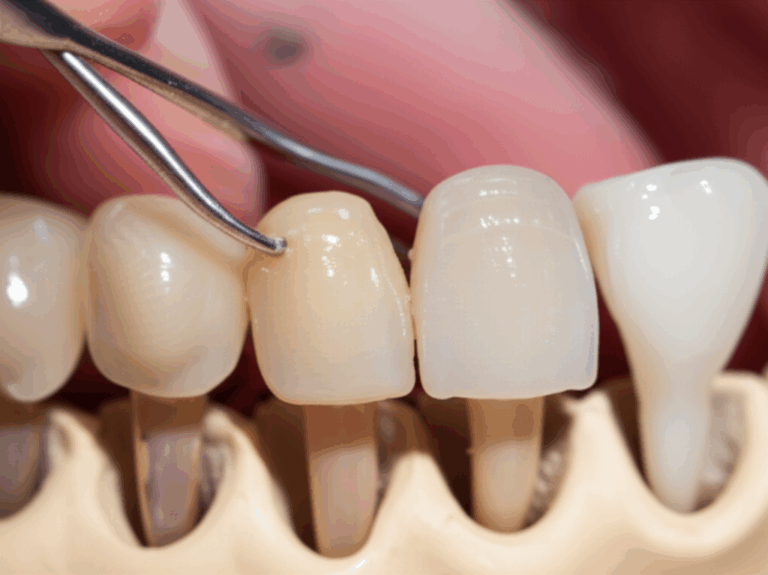
From Dental Hygienist to Dentist: Your Compassionate Guide to Making the Leap
That moment when you ask yourself, “Could I become a dentist after years as a dental hygienist?”—that’s more common than you might think. Maybe you want more freedom in your job, hope to do more for your patients, or you’re looking for a better paycheck. No matter the reason, it’s a big step, and the path ahead can look tough.
Let’s talk about what it really takes to go from Registered Dental Hygienist (RDH) to Doctor of Dental Surgery (DDS) or Doctor of Dental Medicine (DMD). I’ll explain each step—no difficult words, just simple answers, some honest support, and the real facts about what it involves. Whether you just started as a hygienist or you’re thinking of changing careers later in life, you’re in the right place.
In This Article
- Why Dental Hygienists Think About Becoming Dentists
- What You Need Before Applying: School Subjects, Tests, and Experience
- How to Apply to Dental School
- What Dental School is Like
- Paying for Your Dental Education
- What Happens After Graduation: Getting Licensed, Residencies, and Your Career
- Pros and Cons: Should You Do It?
- Real Advice and Success Stories
- Your Action Steps
Why Dental Hygienists Think About Becoming Dentists
Let’s be real—do a lot of hygienists want more from their careers? Yes, many do! Here’s why you might want to make the switch:
- More freedom: Dentists make the main choices about how to treat patients.
- Do more: Hygienists do very important cleanings and check-ups, but dentists can find problems, fix teeth, and offer many more services.
- More money: Dentists usually make a lot more money than hygienists.
- Own your own office: Dentists can start or buy their own dental practices.
- Learn more: You might want to keep learning or get into a special field, like braces or surgery.
Your time as a hygienist gives you a boost—we’ll talk about how in a bit.
What You Need Before Applying: School Subjects, Tests, and Experience
You might wonder, “Does my hygiene degree help me get into dental school?” Good news: It does, but you still need to fit all the usual dental school steps. Here’s what you need.
School Subjects
Most dental schools want you to have finished these science classes:
- Biology (with labs)
- General Chemistry (with labs)
- Organic Chemistry (with labs)
- Physics
- English or Composition
- Sometimes Math or Biochemistry
What if you’re missing some classes?
Maybe your dental hygiene courses missed a few. That’s okay! You can pick those up at community college, a university, or in special “post-bacc” programs made for people changing careers.
Minimum GPA:
Most schools want at least a 3.0 GPA, but students who get in often have higher—around 3.2–3.7. If your grades aren’t top-notch, a post-bacc program can help show you know your stuff.
The Dental Admission Test (DAT)
Everyone hoping to get into dental school needs to take the DAT, even if you’ve been working for a while. Think of the DAT as your entry ticket—the better you do, the more likely schools say yes. The DAT covers:
- Science (biology, general and organic chemistry)
- Perceptual Ability (seeing shapes and spaces)
- Reading
- Math basics
Is it hard?
The DAT isn’t easy, especially if you haven’t had science classes for a while. But as a hygienist, you probably have some background already.
- Tip: Give yourself a few months to study. Try online courses, flashcards, and lots of practice tests.
What score do you need?
A good DAT score is usually 19–22. Schools share what scores their accepted students have—check their websites for details.
Experience & Shadowing
Here’s where being a hygienist helps.
- Patient care: You already work with patients all the time, deal with nerves, and know how dental offices run.
- Shadowing: Schools want to see hours spent following dentists around—even as a hygienist, you should see different types of procedures like root canals or surgeries, not just cleanings.
- Volunteering: Many students help at free dental clinics or health fairs. This looks great, especially if you help people from different backgrounds.
Reference Letters
Schools want letters from people like:
- Science teachers
- Dentists you’ve shadowed or worked with
- Dental office managers or bosses
Ask for letters that talk about how hard you work, how you’ve grown, and why you want to be a dentist.
How to Apply to Dental School
Let’s go through what happens when you’re ready to apply.
Application Timeline & Platform
Most U.S. dental schools use the Time to tell your own story. Dental schools might ask you things like: Just be honest—your life experience matters! Here’s what you can really expect: Dental school is usually four years: No joke—dental school is hard. This is your strong point. You already know: Teachers and classmates often appreciate people who’ve worked in dental offices before. Let’s get real about money, because it matters. Prices change a lot based on where you go and if you get help paying. You made it through dental school! Here’s what’s next: All new dentists in the U.S. need to pass: Many new dentists begin working right away, but you might choose: For more about complex procedures, check out this crown and bridge lab. Every job move has good and bad sides. Here’s what to think about: Still unsure? Read some stories below. Meet Lisa, in her 30s: “I liked working as a hygienist but wanted more. Dental school was hard—lots of late nights and learning how to study again—but being a hygienist helped. I was good with patients and tools, and classmates looked up to me. It’s a big money risk, but I’m glad I did it—I run my own office now!” James shares: “The DAT scared me at 40. I joined a prep course and found a study buddy. Being the ‘older’ student felt strange at first, but I had ideas my classmates didn’t. Don’t forget—being older has its perks!” All stories are different, but here’s what works: Ready to take the next step? Here’s what you can do: 1. Research Dental Schools 2. Check Your Classes 3. Study for the DAT Early 4. Get More Shadowing and Volunteering 5. Plan the Money Side 6. Talk to People Who’ve Made the Jump 7. Look After Yourself 8. It’s Not Too Late Looking for a lab for high-end ceramic teeth? Browse emax dental lab. Choosing to go from dental hygiene to dentistry is a big and brave move. If your gut says you want to do more for your patients and yourself, don’t let fear or doubts stop you. First, learn about your choices, make a plan, and talk to people who’ve done it before. Your time as a hygienist isn’t just practice—it’s your strong base. Whatever you decide, you’re already making a real difference. With planning, hard work, and a clear “why,” you can take the next step in your dental career. Ready for step one? Talk to a dental school advisor, or start reading up on schools that work for you. The road may be long, but you’re ready for it. Questions or need advice about a certain part of this journey? Leave a comment or reach out—being connected is one of the best things about the dental field!Your Personal Statement
Interviews: For Career Changers
What Dental School is Like
What You’ll Learn
Managing Time
Why Your Hygienist Background Helps
Paying for Your Dental Education
How Much Does Dental School Cost?
How to Pay
Is It Worth It?
What Happens After Graduation: Getting Licensed, Residencies, and Your Career
Getting Your License
Extra Training and Specialties
Kinds of Dental Jobs
Pros and Cons: Should You Do It?
Why It’s Good
Why It’s Tough
Real Advice and Success Stories
Your Action Steps: Take Charge of Your Dental Career
Key Takeaways
Bonus: Helpful Resources and Related Reading
Last Words: Move Forward With Confidence








